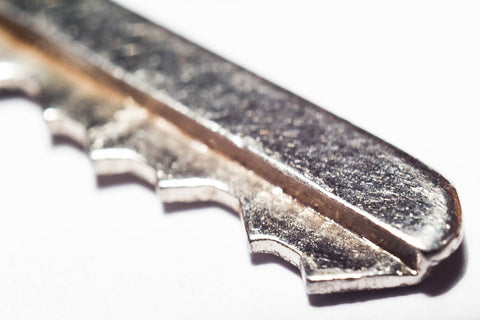One out of five people in the U.S. has an allergy to something. The most common allergy triggers include pollen, dust, mold, pet dander, and food. Fortunately for most allergy sufferers, there’s relief in the form of allergy medications or allergy immunotherapy (either through allergy shots or sublingual allergy drops).

(Pixabay / solart)
Other forms of allergy cannot be treated, and that includes nickel allergy. Nickel allergy is caused by exposure to the chemical element nickel. The resulting allergic dermatitis is not life-threatening or contagious, but it can be very unpleasant. Nickel allergy is usually associated with jewelry because nickel is often found in many earrings, necklaces, and other pieces of jewelry. However, nickel can also be found in coins, watches, belt buckles, cell phones, eyeglass frames, and even soap.
Symptoms of Nickel Allergy
People of all ages may show signs of nickel allergy after being exposed once, or even after prolonged exposure, to objects or substances containing nickel. Nickel allergy can lead to contact dermatitis, which can be maddeningly itchy and uncomfortable.
There are medications to reduce the symptoms of nickel allergy, but once a person has developed this allergy, he or she will always be sensitive to nickel, and it is best to avoid any contact with it in the future. Nickel allergy symptoms can become visible immediately or a few days after the first exposure. They can subside quickly or, in some cases, last for up to two to four weeks. During this period, you should avoid exposure to the source that triggered the allergy.
Some common symptoms of this allergy include:
- Skin redness
- Slight to severe itching of the affected area
- Rashes
- Blisters
- Dry skin patches
Managing Nickel Allergy
Even though nickel allergy cannot be cured, avoiding contact with the trigger will allow symptoms to clear up. In the meantime, you can apply lotions, oatmeal bath, and topical steroid creams to lessen inflammation of affected areas. Antihistamines can also be taken orally to block the substance that the immune system releases to “fight off” the allergen. There are many kinds of antihistamines, and patients may consult a doctor for the medication that will work best.
Corticosteroids can also be taken to subdue inflammation of severe contact dermatitis. Patients can either take oral medications or intramuscular injections.
If you love jewelry but have a nickel allergy, there are alternatives. Look for pieces made from stainless steel or at least 18-karat gold or sterling silver. You may be able to get away with wearing nickel earrings if you use plastic covers.
